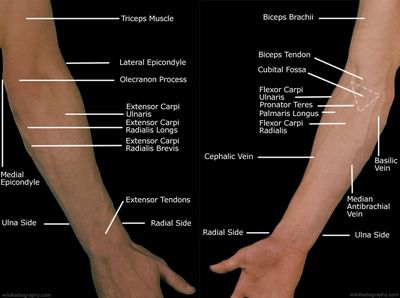An injury to the ulnar nerve in your wrist may lead to pain, swelling and numbness.

If you have suffered a wrist injury that affects this nerve, then you need to see a doctor immediately. This is because the condition of this nerve can be life-threatening if left untreated.
The ulnar nerve is located in the wrist between the first and second metacarpal bones. It runs from the elbow joint down through the finger and into the forearm. It is connected to the rest of the body by a strong muscular tendon. There are two kinds of injuries to the nerve that can occur in your wrist: internal injuries and external injuries. Internal injuries refer to a muscle injury or ligament tear which does not involve the nerve itself; however, this kind of injury can cause weakness and difficulty with grasping objects, and a loss of dexterity.
External injuries refer to an injury to the elbow joint. Usually an external injury can be seen by a sharp pain that radiates down from the elbow joint to the wrist; it is usually accompanied by inflammation and swelling. If you have experienced a penetrating elbow injury, then it is important to visit a doctor as soon as possible.
A condition called ulnar nerve entrapment is another type of injury to the nerve in your wrist. In this case, the nerve has become lodged inside of your bone, but cannot be cut off by surgery. Because of this, the nerve can become damaged if it cannot pass through the bone to the hand and wrist.
The symptoms of ulnar nerve entrapment include a dull pain that shoots down from the elbow joint, a tingling sensation or even shooting pains in the palm or fingers. When you are experiencing these symptoms, it is important that you contact your doctor. You should not ignore them, because they can lead to complications. Your doctor can use a small thin metal probe to press on the nerve and get a reading. He will then make a diagnosis and advise you about treatment options.
If the doctor’s office is not an option for you, he or she can conduct a spinal tap test. This involves inserting a small needle into your arm, under your skin, under the muscle, and slowly withdrawing it until the needle comes out at the end of your forearm. With a high degree of accuracy, the doctor can feel whether there is an obstruction in the nerve or not.
Treatment options are very similar to those for an injury to any other part of the body. If your condition is not as severe, you may be prescribed over-the-counter pain medications such as ibuprofen or aspirin to manage the symptoms. Your doctor may recommend that you seek surgery to relieve the pressure on the nerve.
The sooner you seek medical advice, the sooner possible options can be applied for your condition. If you are not sure of what you need, ask for a referral to a doctor who specializes in wrist injuries or to one who works in a trauma center.
One of the most popular procedures is arthroscopic surgery. This procedure involves cutting or breaking the nerve. Depending on the location of the damage, the surgeon may choose to cut a small hole or remove the entire nerve from the joint. If the damage is extensive, he may perform a procedure known as a partial discectomy. This is used to repair the damage done to the ligaments that support the elbow joint, but not enough to remove the nerve.
Another procedure that can be performed is debriding the nerve. This procedure involves removing the damaged area and replacing it with muscle, which then stimulates the nerve to heal. It also helps prevent the formation of scar tissue around the damaged nerve roots.
If you have ulnar nerve entrapment, you will likely require more than one procedure to treat the injury. Surgery, usually, will be the last resort. In the most severe cases, the doctor may perform an arthroscopic procedure to release the nerve from the bone to reduce pressure.
If your injury is minor, it may not be necessary for surgery. However, with more serious conditions, such as diabetes, the doctor may recommend that you seek medication to help reduce symptoms or to avoid complications. If you choose surgery, your surgeon will assess the severity of the injury and your treatment options.